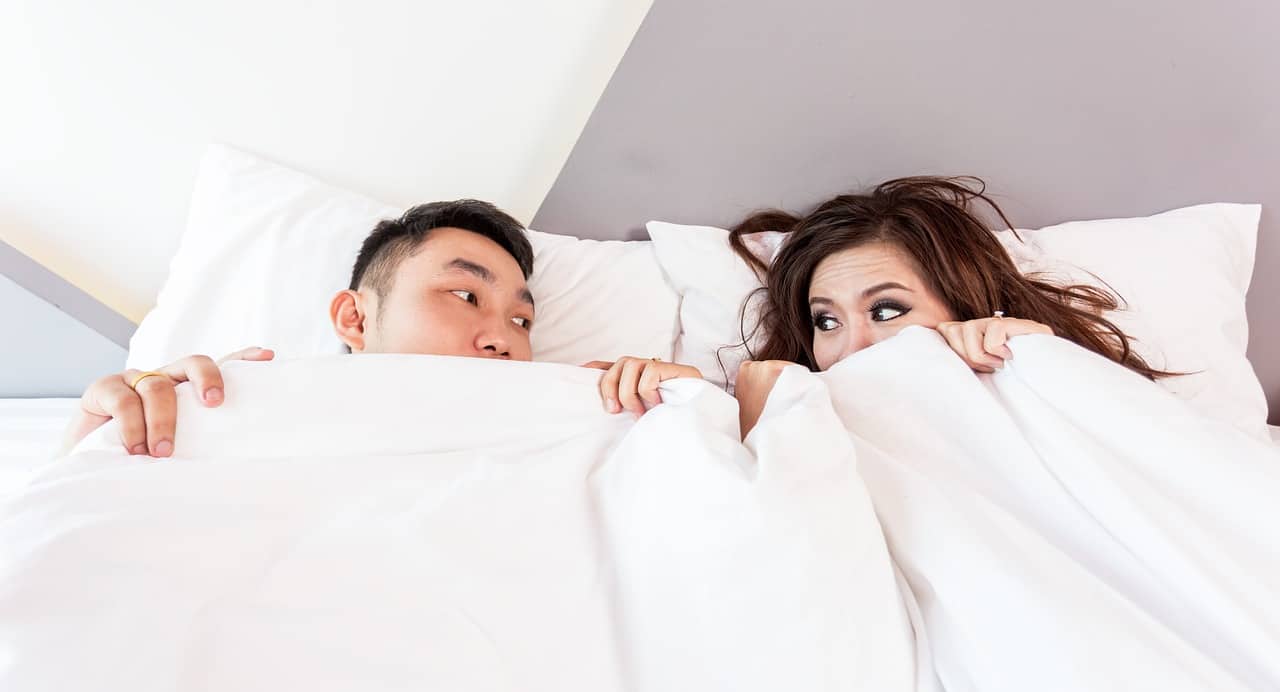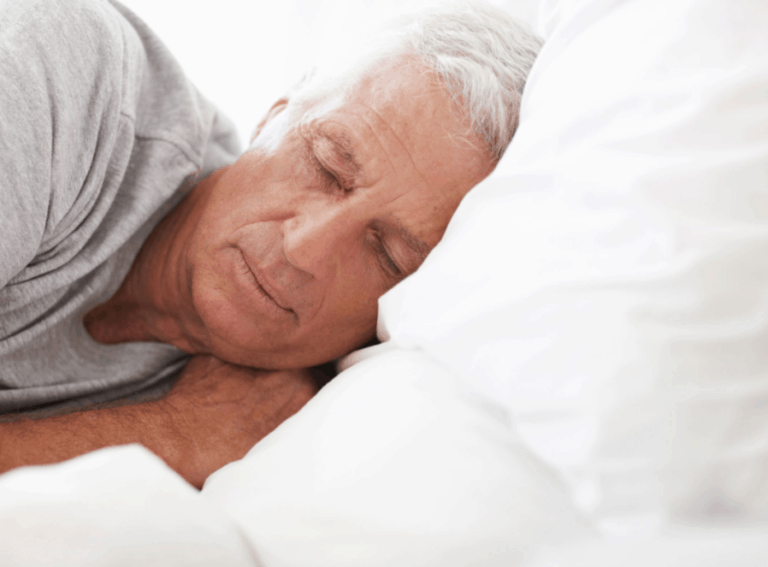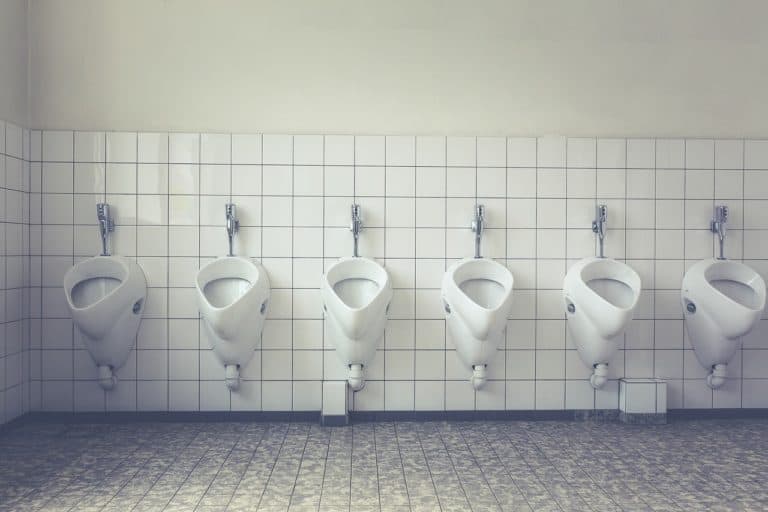Are you having trouble falling or staying asleep? How about your partner? Are you keeping each other from enjoying restful, rejuvenating sleep? Perhaps it’s time to reclaim quality sleep for you and your partner.
What is quality sleep?
The National Sleep Foundation issued a report in 2017 in Sleep Health that outlined the characteristics of quality sleep. Basically, they consist of the following:
- Sleeping more of the time you are in bed (at least 85% of the total time)
- Falling asleep within 30 minutes or less after getting into bed
- Waking up no more than one timer per night
- Being awake no more than 20 minutes after initially falling asleep
In addition, you should get 7 to 8 hours of sleep per night.
What can prevent you from getting quality sleep?
Factors that can prevent you and your partner from getting quality sleep fall into two categories: internal and external. Internal factors include changes in your body, such as fluctuations in brain function if you are experiencing stress and a wide variety of medical conditions. The list of external factors is extensive and can include exposure to light, physical sleeping arrangements, challenging work schedules, use of medications, diet, use of alcohol and/or caffeine, exercise, and more.
Let’s explore some of these factors more closely. Could some of these be affecting the quality of sleep experienced by you and your partner?
Light
Exposure to light past natural nightfall has an impact on our circadian rhythm (aka, sleep-wake cycle). This exposure typically involves synthetic light sources, and the brain finds it challenging to process the information correctly. The confusion can result in a disruption in circadian rhythm and loss of sleep.
Solutions: Minimize your exposure to light after sunset. Avoid using electronic devices at least two hours before retiring. Ban electronic devices from your bedroom, or keep your cell phone in a bedside drawer. Keep your sleeping area dark.
Work schedules
Do you and your partner follow differing work schedules? Shift work—graveyard shifts, rotating shifts, split shifts–plus the need to work two jobs can throw off your sleep-wake cycle and result in insomnia.
Solutions: If you can change your work schedule to a more traditional workday that would be optimal. However, if that is not possible, try to nap before or during your night shift. Limit caffeine intake for at least four hours before bedtime. Wear sunglasses when you leave work to reduce your exposure to sunlight. If possible, take off 48 hours after a series of shifts.
Medical conditions
Acute or chronic health problems can take a tremendous toll on your ability to get quality sleep. Health issues may involve physical discomfort and pain associated with arthritis, fibromyalgia, prostatitis or enlarged prostate, menstruation or menopause, or restless legs syndrome.
Use of medical devices during the night, such as a CPAP or oxygen concentrator, can cause interrupted or poor sleep for the affected individual or their partner. Anxiety, depression, and other psychological factors also affect sleep quality.
Solutions: Talk to your doctor about your treatment program for your medical condition and any possible changes that can be made so you can enjoy more restful sleep. Sometimes couples with medical conditions decide to get a “sleep divorce.” This means that loving partners choose to sleep in different beds because their sleep patterns or needs don’t match, and this mismatch may be preventing each other from getting quality sleep.
Use of medications
Consumption of certain common types of medications, such as alpha blockers, antidepressants, beta-blockers, and antihistamines can have a significant impact on your ability to fall asleep and stay asleep throughout the night.
For example, beta-blockers can interfere with your ability to reach deep sleep and REM sleep. REM (rapid eye movement) sleep is the deepest sleep stage and occurs about 90 minutes after you fall asleep. It benefits learning, mood, and memory. Deep sleep is non-rapid eye movement sleep. This phase occurs about 30 to 45 minutes after falling asleep and is the phase when the body heals itself naturally, replacing cells, building muscle, and healing wounds.
Alpha-blockers, which are often used to treat prostate issues and hypertension, can cause an increase in daytime sleepiness.
Solutions: Talk to your doctor about possible changes in your medications. You also may want to try some natural remedies that complement your current medication that may allow you to lower your dosage and thus alleviate sleep-disturbing side effects.
Alcohol and caffeine use
Caffeine inhibits the production of adenosine, a brain chemical that is important in inducing sleep. If you think downing a drink or two before bedtime will improve your sleep, you would be mistaken. Although alcohol can help you fall asleep, it also will wake you up in the middle of your sleep and have a detrimental impact on sleep quality.
Solutions: Avoid alcohol and caffeine before bedtime.
Tips for improving sleep quality
Some other tips to consider for yourself and your partner if you want to get a good night’s sleep every night.
- Relax before retiring. Avoid exercise, stimulating entertainment (sex is okay!), disturbing conversations, or other activities that prevent you from relaxing. You may want to do deep breathing, take a warm bath, meditate, read something light, or listen to soothing music. This may also be a good time for a back or foot rub.
- Room environment. Keep the room at a temperature that is comfortable. This is a matter of personal preference, although a temperature in the 60s is often recommended. Also use pillows, sheets, and other bed clothing that are conducive to quality sleep.
- Go to bed and get up the same time every day, weekends/days off included. Such habits can help get your body into a rhythm for sleep.
- Expose yourself to bright sunlight (or other bright light) in the morning. This can help regulate your circadian rhythm.
References
Brantner C. Should you sleep in the same bed as your partner. Psychology Today 2018 Nov 9
National Sleep Foundation. What is good quality sleep?
Ohayon M et al. National Sleep Foundation’s sleep quality recommendations: first report Sleep Health 2017 Feb; 3(1): 6-19







